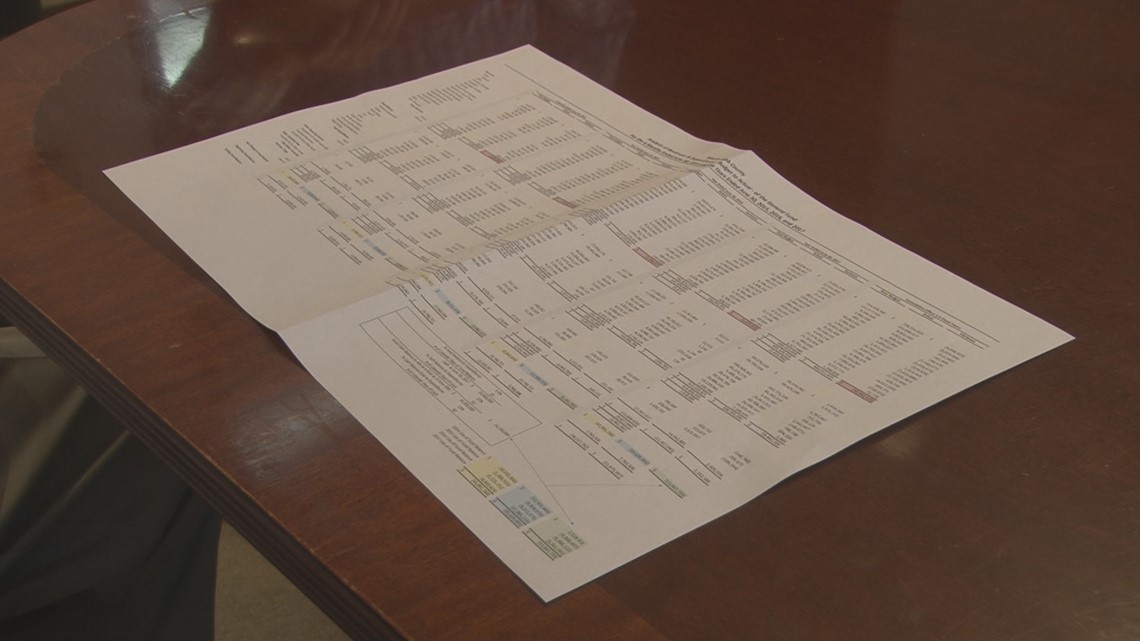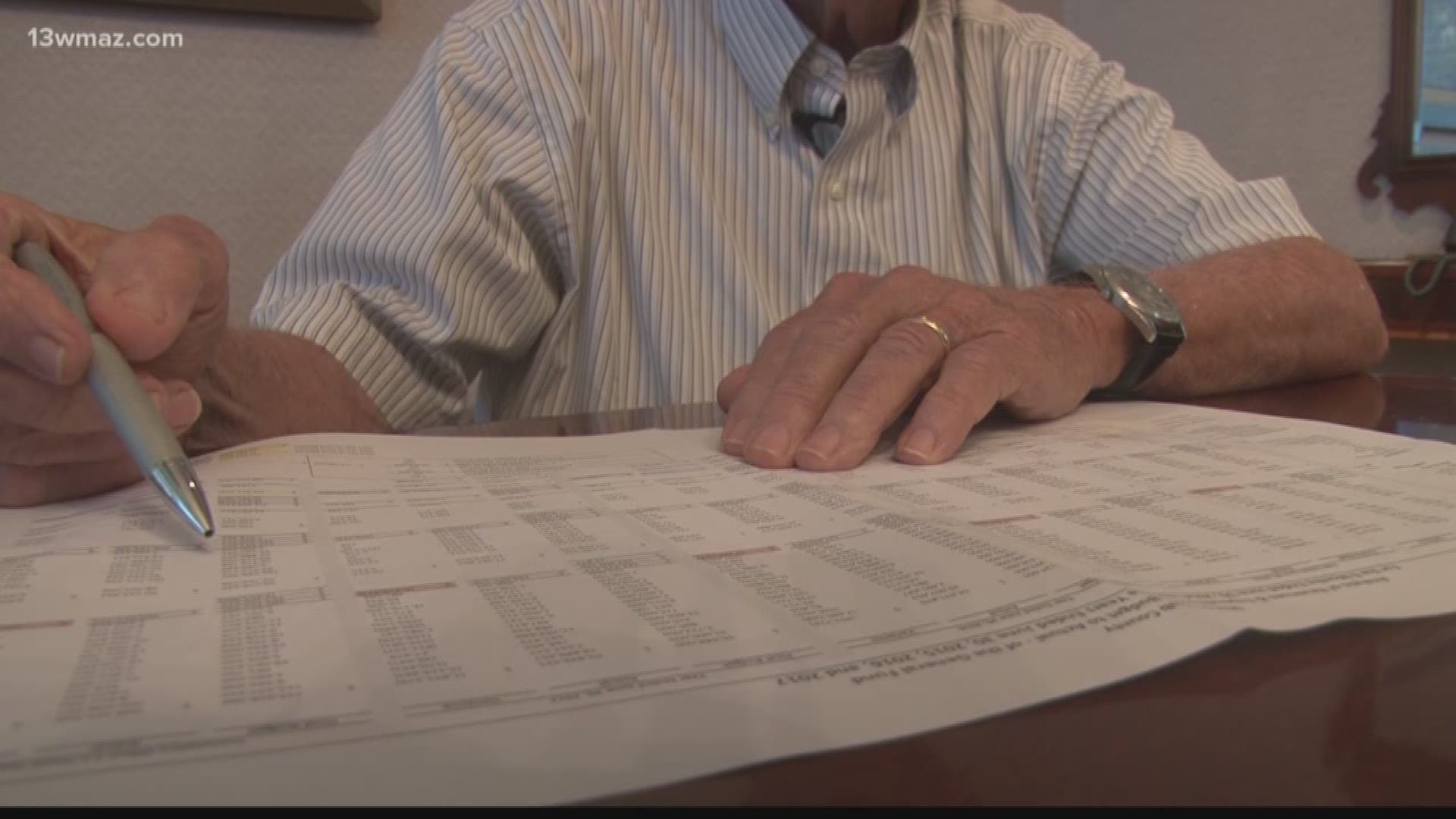As Bibb County discusses raising property taxes again to prevent yet another projected deficit, many people in the community have questioned why this keeps happening.
Now, several commissioners are speaking up and blaming part of the problem on how fast the county reduced their budget and rolled city taxes back during consolidation.
For 10 years, Elmo Richardson served as the head of Bibb County’s finance committee, so when it came time to consolidate, Mayor Robert Reichert turned to Richardson for advice.
“I met with Robert and Dale Walker. Robert asked me, ‘What's my greatest challenge?’ And I said, ‘Your greatest challenge will be a lack of revenue.’ And he said, ‘Oh,’” says Richardson.
Their new charter said the county had to cut its combined budget by 20 percent and cut taxation for city taxpayers, a change that costs the county about $20 million a year.
“I said, ‘Well, Robert, your City of Macon taxes are going away. How are you going to make up that much and still cut your budget?’” says Richardson.
Instead of taking the full 4 years, they had to make those changes -- the county did it in 2.
“But at the same time, he's pulling money out of the reserves to do it,” says Richardson.
Richardson showed where the county over projected revenues every year since consolidation.


“You wake up a year later and you’re 4 or 5 million the hole,” says Commissioner Mallory Jones.
Jones says they should have learned from those shortfalls.
“We're depending upon the administration to give us as accurate of figures as we can get, and they weren’t accurate 3 years in a row,” says Jones.
These are all issues Jones and Richardson say they could have adjusted if they took their time making these changes.
Mayor Robert Reichert is out of town, but he sent us the following statement:
“When we consolidated, there were many benefits to be expected, including a smaller government, the elimination of double taxation, and more efficient services. When we eliminated the city tax and the unincorporated street light fees, the revenues went down faster than we could reduce expenditures without severely impacting services. Since it was a new government, there were revenues that we wouldn’t have an accurate prediction until we had several years of history, like franchise fees and insurance premiums. That, combined with increased expenditures for salaries and benefits, led us to need to use our fund balance.”

